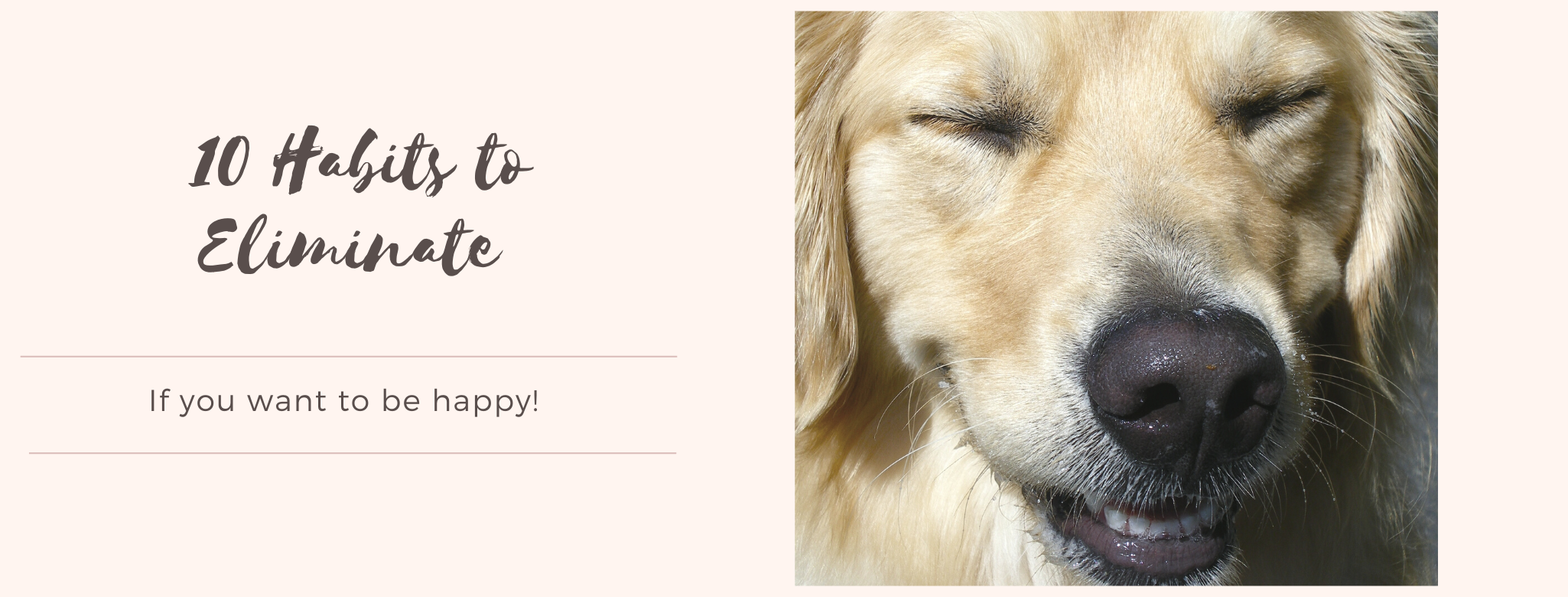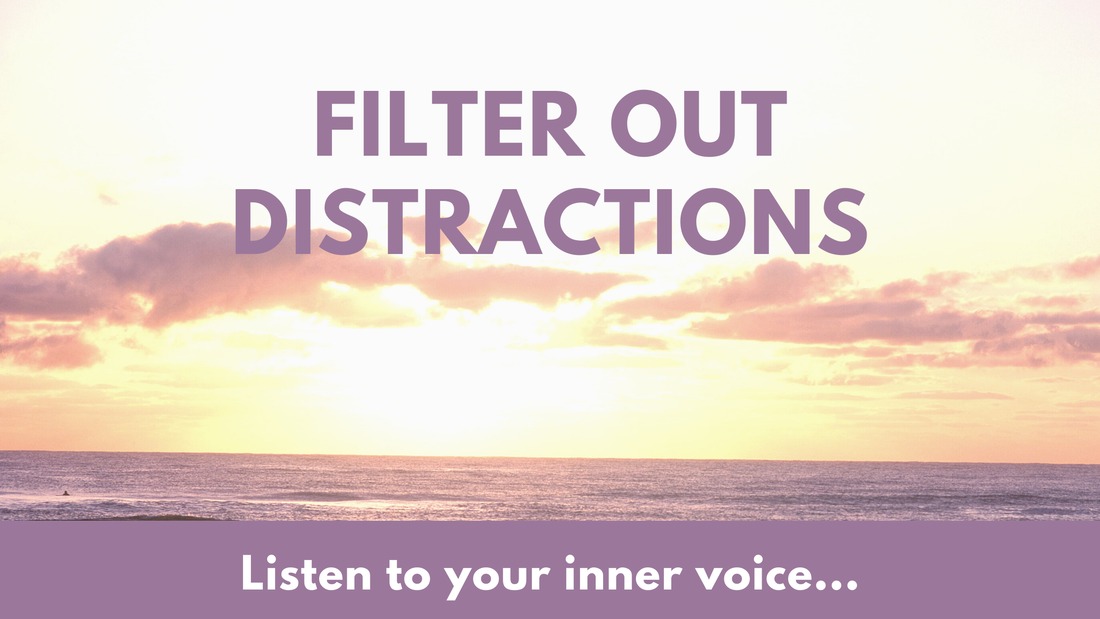|
We all have habits we are not proud of. Many habits we have can prevent us from living a happy life. When you eliminate negative habits you can start to feel joy. If you want to see a change in your mood, be willing to commit to the change and it will happen!
Avoid these habits and you'll enjoy greater happiness: 1. Concerning yourself with the opinions of others. Criticism is inevitable. You could truly be perfect in your own way and someone will still present you with criticism. You cannot impress everyone! Shift your focus to making yourself happy and surround yourself with people who accept you as you are! 2. Stop that negative self talk! We are all critics of ourselves. However, there is no true benefit to negativity in your life; whether it comes from you or someone else. We don’t need to add the many challenges that life presents us with daily. Try to re-frame or replace the negative thinking with positive self talk. Highlight the things you are good at; the traits you have that are different; and what a wonderful individual you are. 3. Stop harping on the things you don’t have. If you're living under a park bench, it's natural to want a home. But if you have what you need and remain content with what you already have, wanting more can be a source of stress and frustration. Be reasonable in what you strive for. No one needs a personal jet or a $10 million home. But goals are possible. 4. Comparing yourself to others. Everyone has their own unique strengths, weaknesses, past, and challenges. If you want to make a reasonable comparison, compare your current situation to your situation 5 years ago. If you've made progress, celebrate. If you haven't, figure out why and get busy. 5. Beating yourself up over mistakes. Regret does not provide any benefit. Mistakes are a daily part of life. Learn from them and move on toward a brighter future. Ask yourself if your regret is getting you to where you need to be? 6. Blaming others. You begin to lose control when you believe someone else is the cause for difficulty that you experience. You only have the power to fix things if you believe you identified how you added to the situation. Regardless of who you believe is to blame; it’s still your responsibility to handle it. 7. Set those Boundaries! Saying yes to everything and everyone will eliminate any self care time you have. We all need some down time to re-charge our internal batteries. Learn to say "no" when necessary. It’s not selfish, it’s self care! 8. Waiting for perfect conditions. Have you ever thought to yourself, “I’ll move when I have the money,” or “I’ll have children when I am fully stable and set in life.” Whether you're waiting for the perfect time to have children or start your own business, that perfect time will never arrive. Get started right away on the activities that mean the most to you. Time is of the essence! 9. Avoiding new experiences. Our own thoughts prevent us from living at times! Just as I stated in number 8 above; there is no perfect time to do things. What's the point in living the same day repeatedly? You only have so many years on Earth. Get the most out of it and live a life of many experiences. 10. Trying to change too much at once. We are remarkably adaptable in the long term. However, it's very challenging to make major changes in the short term. Make smaller changes in your life and build upon them. You can't change much in a week, but you can make major changes over a year or more with small attainable steps. I encourage you to review your habits. Determine which you need to keep and which are good to get rid of in order to be happy. Happiness is closer than you think!
1 Comment
Action creates potential. When you take action, things change. New opportunities become available. Listen below.
Want to relieve tension? Did you know stress lives in our bodies? Try this out, you won't be disappointed. We have all experienced tense muscles, aching bones, and fatigue. But what do we all do with that? How do we relax?
Making time for your inner voice means making time for reflection. It is hard to drown out negativity throughout our day; negative people’s comments; negative media; and our own inner critic. It is important that we are honest and open to our inner voice and even more important that we re-frame negative thinking patterns in our own minds.
Set aside a regular time for self-reflection. Think about the things in your life that are going well and that make you happy, as well as the things that you’re dissatisfied with. Seek out a place and time for your moments of self-reflection where you can be alone and uninterrupted for at least 15 minutes. Be sure to choose a place you can relax and be uninterrupted; even if it means sitting in your car with the seat back for a few moments. Try to record the insights you have during this time. Allow your mind to quiet for a few moments and then jot down some notes or put them in your phone when you are done. Share your impressions with a trusted friend; family member; or therapist. Review what comes to mind when you drown out all the noise that the world adds into our minds and hearts. Incorporate things in your day that bring you joy and peace. The more you begin to reflect on what brings you joy and peace; the easier it is to become an automatic practice in your life. Breathing, yoga, running, hiking, listening to music; anything your heart desires to be truly calm and refreshed. When you begin to incorporate your new practices it is easier to drown out our inner critic. The voice that judges us and makes us doubt ourselves and our infinite abilities. The voice that prohibits us from taking healthy risks and gaining rewards along the way. Enjoy my podcast recording on, “calming the inner critic.”
There are a combination of interventions used to treat panic disorders with CBT. Cognitive Behavioral Therapy is the type of therapy but there are action steps within all therapies known as interventions. Some of them would be; Relaxation Training, Mindfulness Practice, and Cognitive Restructuring. Panic and anxiety can wreak havoc on our bodies due to tension in the muscles, increased cortisol (stress hormone), and other chemical reactions that include our natural fight/flight/freeze response. With this it is important to practice relaxation skills as a first step to being the body to a level of calm. Learning to decrease physiological arousal is part of the craft of lowering anxiety and remaining calm during chaos. This can include progressive muscle relaxation (you can find this on my podcast Calm Connect); breathing techniques; and grounding skills. Panic and anxiety usually take over our mind and bodies because we are not mindful in the moment, we are thinking one thousand different things that haven’t even happened yet. We are racing in our thoughts and not focusing on what is in front of us. Try naming everything in the room for just a few minutes and you will notice a reduction in tension. One I like is naming every animal you can possibly think of. This gives your mind a mini-mental break from trying to figure out how to conquer your life! Just relax a little! Cognitive Restructuring is a way to become more aware of our cognitive thinking errors. We all have them! To lower anxiety is to reduce fear-provoking thoughts and catastrophizing small situations as insurmountable barriers. Noticing our thinking errors will lead to a reduction in the frequency and intensity of our panic and anxiety. Research common ‘cognitive distortions,’ to see which ones fill your mind regularly. |
Author and Podcast Host Nicole Festa LPC, LAC, NCC, EMDR, NCACNicole has authored e-books and runs a podcast called "Calm Connect," which can be found on most platforms to include Itunes, Anchor, and Spotify. Categories |






 RSS Feed
RSS Feed